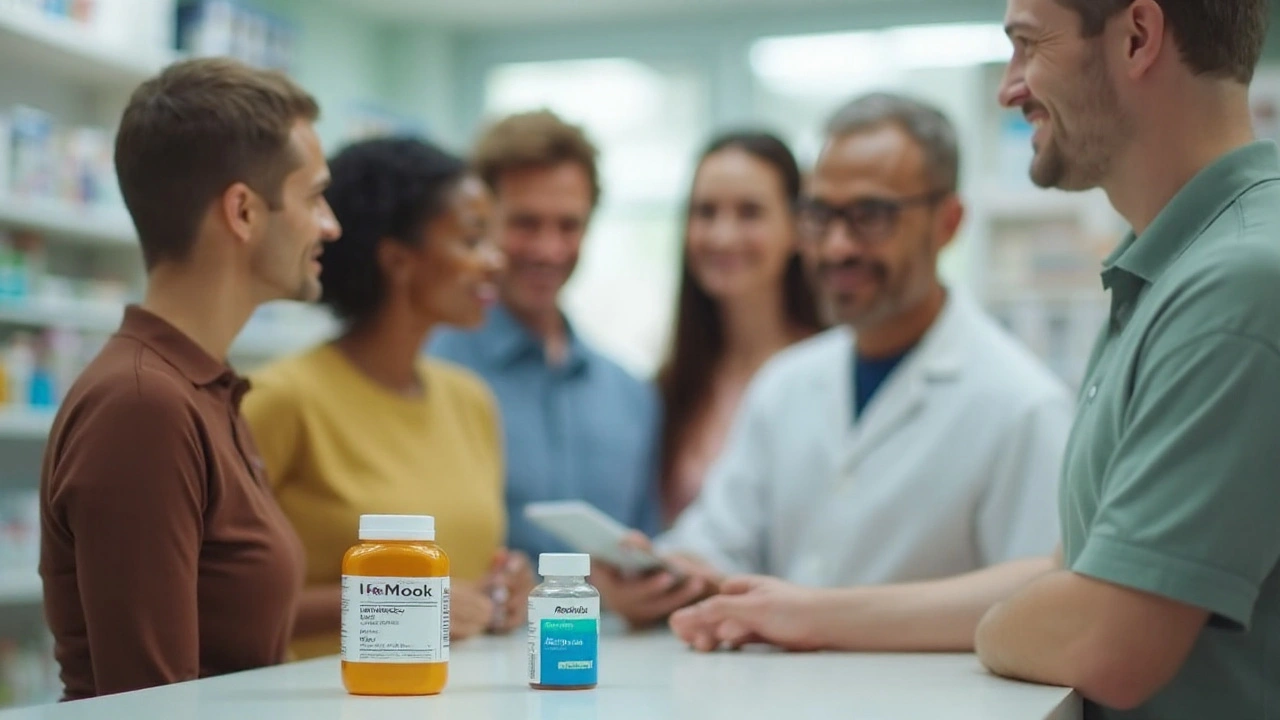Drug Safety: What You Need to Know Today
When you take any medication, understanding how to use it safely can make a big difference in how well it works and how few problems you face. This page collects the most useful advice from our experts, so you can protect yourself and your family.
First off, always read the label. It’s not just a legal requirement – it tells you the right dose, when to take it, and what to avoid. If something looks confusing, ask your pharmacist right away. A quick question can prevent a costly mistake.
Pharmacists & Chronic Disease Management
Pharmacists do more than fill prescriptions. They help people with diabetes, heart disease, asthma, and other long‑term conditions keep their medicines on track. They check for interactions, suggest simple lifestyle tweaks, and even set up reminder systems. When you see a pharmacist, treat the visit like a mini‑check‑up for your meds.
For example, a pharmacist might spot that a new blood pressure pill clashes with an over‑the‑counter sleep aid. By catching it early, they can recommend an alternative or adjust the timing, keeping you safe and your health steady.
Seasonal Allergy Medications
Allergy season hits hard for many, and the right medicine can keep you breathing easy. Antihistamines, nasal sprays, and eye drops all have pros and cons. Some cause drowsiness, while others work best when taken before symptoms start.
Pick a non‑drowsy option if you need to drive or work, and always follow the timing guidelines. A short dose before you head outside can stop a flare‑up before it begins. If you’re unsure which product fits your routine, ask the pharmacist for a quick comparison.
Balancing meds with a healthy lifestyle is another smart move. Exercise, good sleep, and a balanced diet help your body respond better to medication. Think of your body as a team – the drug does its part, but the rest of the team needs to stay in shape too.
When you combine pharmaceuticals with lifestyle changes, you often see stronger results with lower doses. Less medicine can mean fewer side effects, which is a win for anyone looking to stay active and feel good.
Side effects are a normal part of many drugs, but they don’t have to scare you. Keep a simple log of any new symptoms – when they started, how strong they are, and what you were doing. Bring this information to your doctor or pharmacist. A clear picture helps the professional decide whether to adjust the dose or switch the drug.
Never share prescription pills with friends or family, even if they think the medication is harmless. What’s safe for you might be dangerous for someone else, especially children and seniors.
Storing medication properly also matters. Keep pills in a cool, dry place away from direct sunlight. Some drugs lose potency if they get too hot or humid, and a few need to stay in the original bottle to stay safe.
Finally, keep your medication list up to date. Write down every drug, supplement, and herbal product you use. Show this list to every health professional you see – doctors, dentists, and pharmacists alike. A complete list helps avoid hidden interactions.
Drug safety isn’t a one‑time checklist; it’s an ongoing habit. By staying curious, asking questions, and using the resources on this site, you’ll make smarter choices and enjoy better health every day.

Understanding Generics: What Are They and Key Differences Explained
Learn what generics are, how they differ from brand-name drugs, and the important facts you need to know for safe medication choices.
view more